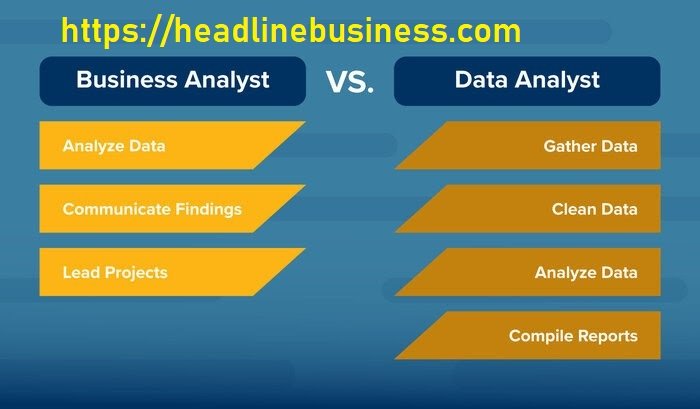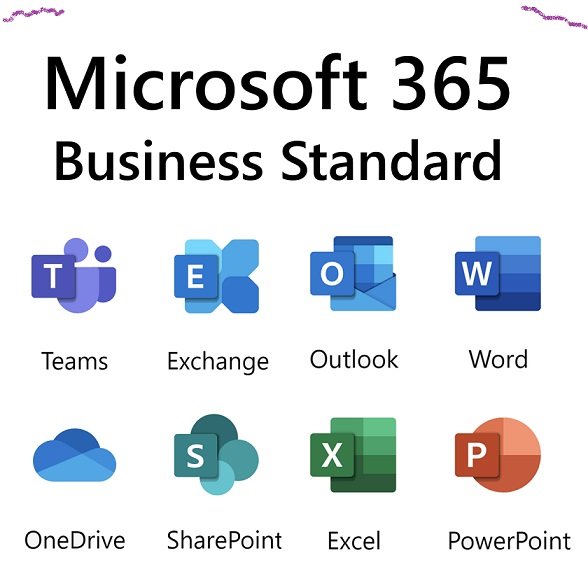Introduction
In today’s data-driven world, both Data Analyst Vs Business Analyst play vital roles in helping organizations make informed decisions. Though their job titles may sound similar, their responsibilities, required skills, and focus areas are quite different. In this comprehensive guide, we’ll explore the distinctions between these two professions, examine the skills and qualifications needed for each, and provide insights into their career trajectories. Whether you’re considering a career as a data analyst or a business analyst—or simply want to understand the differences between the two roles—this article will serve as your ultimate resource.
What is a Data Analyst?
A data analyst is primarily responsible for collecting, processing, and interpreting large datasets to help organizations make data-driven decisions. They use various analytical tools, programming languages, and statistical techniques to extract meaningful insights from raw data. Data analysts typically work with structured data, focusing on analyzing trends, creating reports, and visualizing data to present findings in a comprehensible way.
Key Responsibilities of a Data Analyst
- Data Collection and Cleaning: Data analysts gather data from various sources, ensuring that it is accurate, relevant, and clean. This process often involves removing duplicates, handling missing values, and transforming data into a usable format.
- Data Analysis: Using statistical methods and data analytics tools (such as SQL, Excel, Python, or R), data analysts interpret large datasets to uncover patterns, correlations, and insights.
- Reporting and Visualization: After analyzing the data, data analysts present their findings through clear and understandable visualizations (charts, graphs, dashboards) that help stakeholders make informed decisions.
- Predictive Analytics: In more advanced roles, data analysts may also engage in predictive modeling, where they use historical data to predict future trends.
Skills Required for a Data Analyst
| Skill | Description |
|---|---|
| Technical Skills | Proficiency in SQL, Python, R, Excel, and data visualization tools (e.g., Tableau, Power BI). |
| Statistical Analysis | Strong understanding of statistical techniques and their application to data analysis. |
| Data Cleaning | Experience in data wrangling and cleaning techniques to ensure data quality. |
| Problem-Solving | Ability to analyze complex data problems and develop effective solutions. |
| Communication | Strong ability to present findings in a clear, actionable manner to stakeholders. |
Educational Background for Data Analysts
To become a data analyst, a Bachelor’s degree in fields like Computer Science, Statistics, Mathematics, or Information Technology is typically required. Some employers may also prefer candidates with a Master’s degree or relevant certifications such as:
- Google Data Analytics Professional Certificate
- Microsoft Certified: Data Analyst Associate
- Certified Analytics Professional (CAP)
What is a Business Analyst?
A business analyst focuses on understanding business needs and identifying solutions to business problems. They act as a liaison between the business side and IT teams, ensuring that technology solutions align with business goals. Business analysts don’t work directly with data in the same way data analysts do, but they leverage data to understand and propose improvements to business processes.
Key Responsibilities of a Business Analyst
- Requirements Gathering: Business analysts work closely with stakeholders (including executives, managers, and end-users) to understand their needs and document business requirements for new projects or systems.
- Process Improvement: They analyze business processes and workflows to identify inefficiencies, bottlenecks, or areas for improvement. They then propose solutions that enhance productivity and performance.
- Solution Implementation: Business analysts collaborate with IT teams to ensure the technical solutions meet business requirements. They often assist in defining system specifications and testing solutions.
- Stakeholder Management: A key part of the business analyst’s job is managing relationships with stakeholders, ensuring that their needs are met while maintaining the scope of projects.
Skills Required for a Business Analyst
| Skill | Description |
|---|---|
| Business Knowledge | Strong understanding of business processes, industry trends, and organizational structure. |
| Communication | Ability to communicate complex ideas in a clear and concise manner to both technical and non-technical stakeholders. |
| Problem-Solving | Identifying business problems and coming up with practical solutions to address them. |
| Project Management | Knowledge of project management frameworks (Agile, Scrum, Waterfall) to help manage business transformation projects. |
| Technical Skills | Familiarity with tools like Microsoft Office, Visio, and project management software (e.g., JIRA). |
Educational Background for Business Analysts
A Bachelor’s degree in areas such as Business Administration, Management, or Finance is typically required to pursue a career as a business analyst. However, some business analysts also hold a Master’s degree in Business Administration (MBA). Additionally, certifications like the Certified Business Analysis Professional (CBAP) or Agile Business Analyst certification can enhance career prospects.
Data Analyst vs Business Analyst: Key Differences
While both roles contribute significantly to the success of an organization, their focus areas and responsibilities vary greatly. Here’s a comparison table to highlight the key differences:
| Aspect | Data Analyst | Business Analyst |
|---|---|---|
| Primary Focus | Analyze data to extract insights and inform decisions. | Analyze business processes and identify solutions to business problems. |
| Data Handling | Works directly with large datasets, performing data cleaning, analysis, and visualization. | May analyze data, but focuses more on the business context and process improvement. |
| Skills Required | Proficiency in data analysis tools (SQL, Python, R), statistical analysis, and data visualization. | Strong business knowledge, stakeholder management, process improvement, and communication skills. |
| Tools | SQL, Excel, Tableau, Power BI, R, Python. | Microsoft Office, Visio, JIRA, project management software. |
| Outcome | Data-driven insights, predictive models, and visualizations. | Solutions to business problems, improved workflows, and system specifications. |
| Job Titles | Data Analyst, Data Scientist, Data Engineer. | Business Analyst, Process Improvement Specialist, Business Systems Analyst. |
| Educational Background | Typically a degree in Computer Science, Statistics, or Data Science. | Typically a degree in Business, Management, or Finance. |
Which Career Path Should You Choose?
Choosing between a data analyst and a business analyst career path depends on your interests, skills, and long-term goals. Here are a few considerations:
- Choose Data Analyst if you enjoy working with data, statistics, and analytics tools. If you have strong technical skills and like to make decisions based on data-driven insights, this could be the right career for you.
- Choose Business Analyst if you are more interested in improving business processes, working with stakeholders to identify solutions, and managing projects. Business analysts focus on understanding business needs and bridging the gap between business and technology.
Career Growth and Salary Expectations
Both career paths offer lucrative opportunities, but salary expectations can vary based on factors like location, experience, and education.
Average Salary Comparison (in the US)
| Role | Average Annual Salary (USD) |
|---|---|
| Data Analyst | $60,000 – $100,000 |
| Business Analyst | $70,000 – $110,000 |
Salary can vary depending on industry, geographical location, and the level of expertise. For example, data analysts in tech companies or financial services may earn significantly more than those in other sectors.
Career Growth
- Data Analyst: With experience, data analysts can progress to roles such as senior data analyst, data scientist, or data engineer. Certifications and a strong understanding of machine learning and big data can further enhance career prospects.
- Business Analyst: Business analysts can move into roles like senior business analyst, business systems analyst, or even project manager. Pursuing an MBA or gaining certifications in project management (e.g., PMP) can lead to higher-level positions.
Conclusion
Understanding the differences between Data Analyst Vs Business Analyst is crucial for anyone considering a career in the field of data or business intelligence. While both roles are essential for organizational success, they require distinct skill sets and focus on different aspects of the business. By identifying your strengths and interests, you can make a well-informed decision about which path to pursue.




